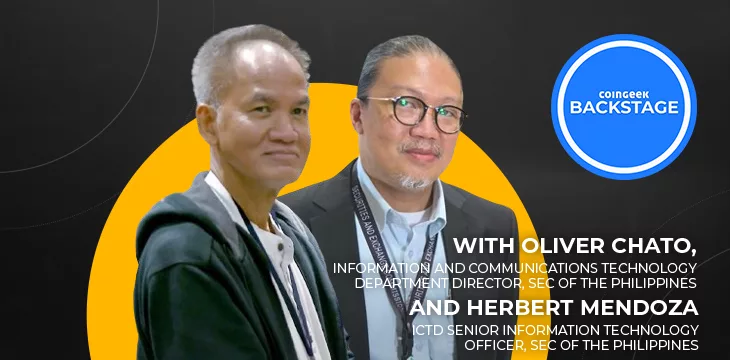With data being the most vital asset one has, the Philippine government is leveraging blockchain technology to streamline operations and ensure that Filipinos’ personal information is being kept securely in the age where most operations are now being handled online.
Speaking on the sidelines of the nChain-organized blockchain workshop at the Securities and Exchange Commission (SEC), Information and Communications Technology Department (ICTD) Director Oliver Chato said the seminar is geared toward building the knowledge and understanding of government agencies, including the Bangko Sentral ng Pilipinas (BSP) and the Department of Information and Communications Technology (DICT), on blockchain technology.
“This event is really geared towards focusing on how to use blockchain—an introduction to blockchain—how to use blockchain as regards the regulatory functions of government agencies, as well as if you look at the curriculum, some of it is about how to manage risk associated with blockchain, what are the different avenues for utilizing or using blockchain for more utility-type purposes rather than just crypto,” noted Chato.
The workshop was made possible with the support of nChain, which offered the blockchain course for free.
Chato added that such workshops aren’t just a platform to educate the public sector in emerging technologies but also help them craft best practices for the private sector.
Currently, the SEC is developing blockchain projects centered on dynamic objects instead of static ones, Chato told CoinGeek Backstage reporter Claire Celdran.
Explaining this initiative, the official said the SEC uses blockchain to record documents, including changes to Filipinos’ information. Since it is on-chain, data recorded are more secure compared to traditional documentation.
“We can provide continuing changes to the document and still it being identified by that identifier, so, that object is now an organic object that you can continuously come back to, to see if there are any updates,” he said.
“Our efforts are geared towards that…providing blockchain as, I think, a vehicle for documents as they are in a way smart contracts on the blockchain, as well as providing authentication of documents,” added Chato.
Chato hopes the SEC and the national government will be able to establish better trust for local firms, safeguard investors, and create an economy that foreign entities see as a viable investment hub.
“Personally, I guess blockchain might not be…in a way, not the sexiest…but I think blockchain will consolidate a lot of the core of the information that we’re seeing that’s being submitted, for instance, to government,” Chato said on how blockchain could benefit Filipinos.
“We can actually secure information better, and I think that’s one of the more direct benefits. Indirectly, once we established that trust and then continue establishing it…we become more viable as a market for investments from foreign investors,” he concluded.
Diving into the fundamentals of blockchain
For participants of the blockchain workshop, the seminar is a perfect avenue to learn the basics of blockchain and apply what they learn in executing their planned projects.
But most importantly, the workshop helps officials break the common misconceptions surrounding the technology, said senior information technology officer of ICTD Herbert Mendoza.
“In terms of the use of the blockchain, it’s not yet matured enough in the Philippines because [there’s] some kind of hesitation for now,” Mendoza stressed.
He noted that the workshop speakers, like Dr. Craig Wright, have made it easier for the ICTD and other public sector officials to learn more about blockchain, thanks to their expertise in the field.
“I’m amazed of the speakers because I think most of them are in the top caliber position and they are very much equipped with all this information about the technology,” said Mendoza.
Tags: Blockchain, Crypto News

